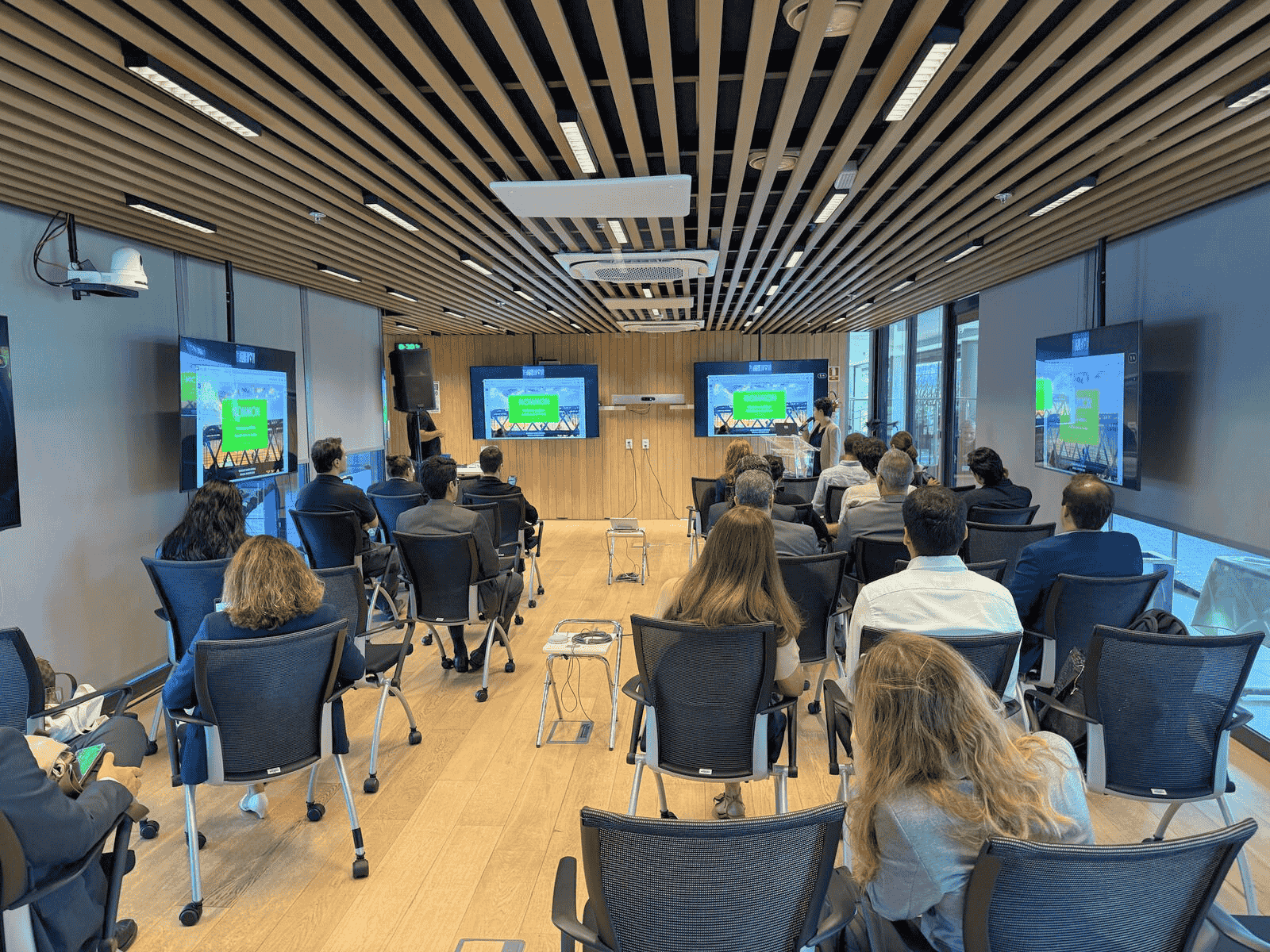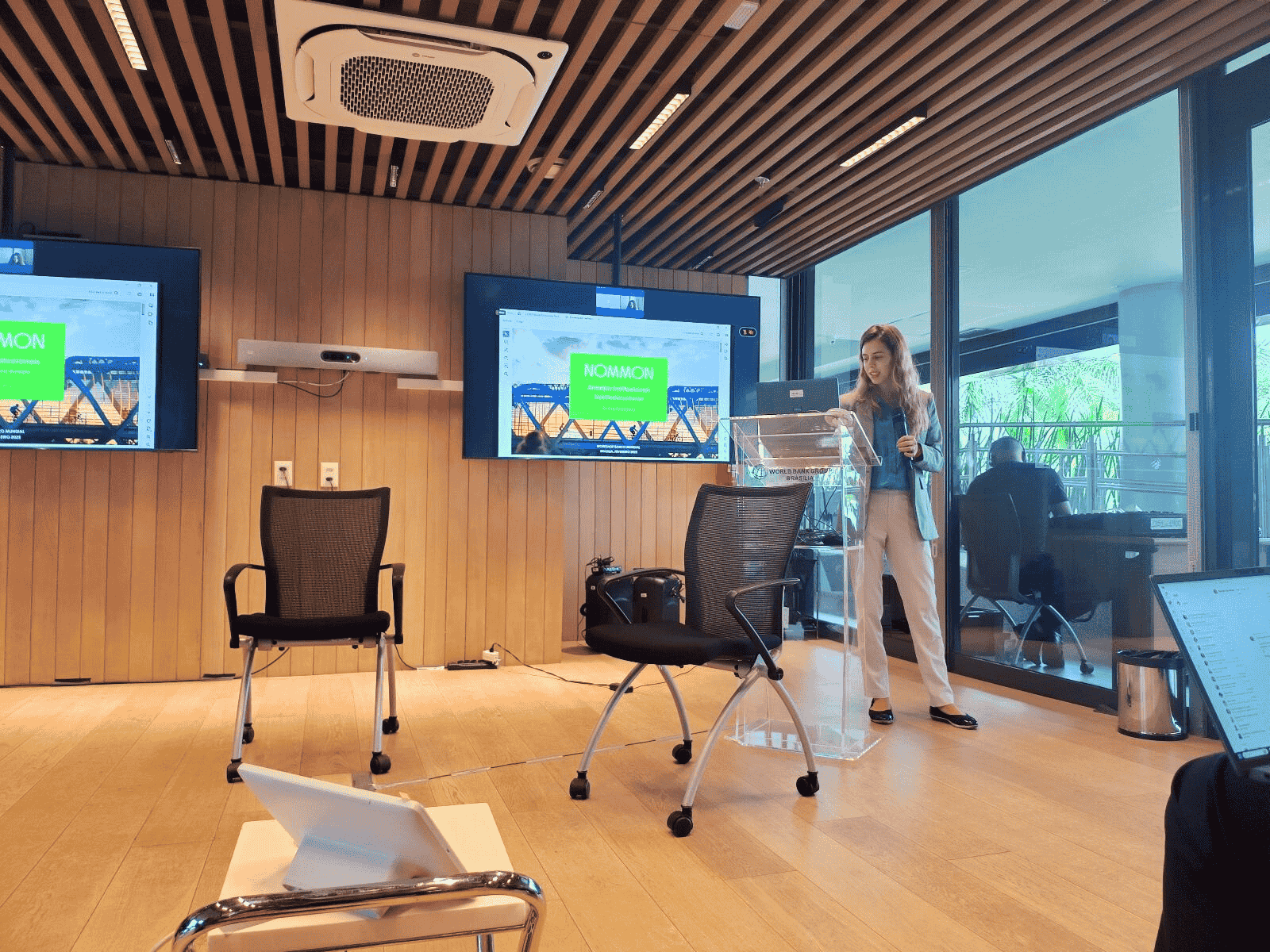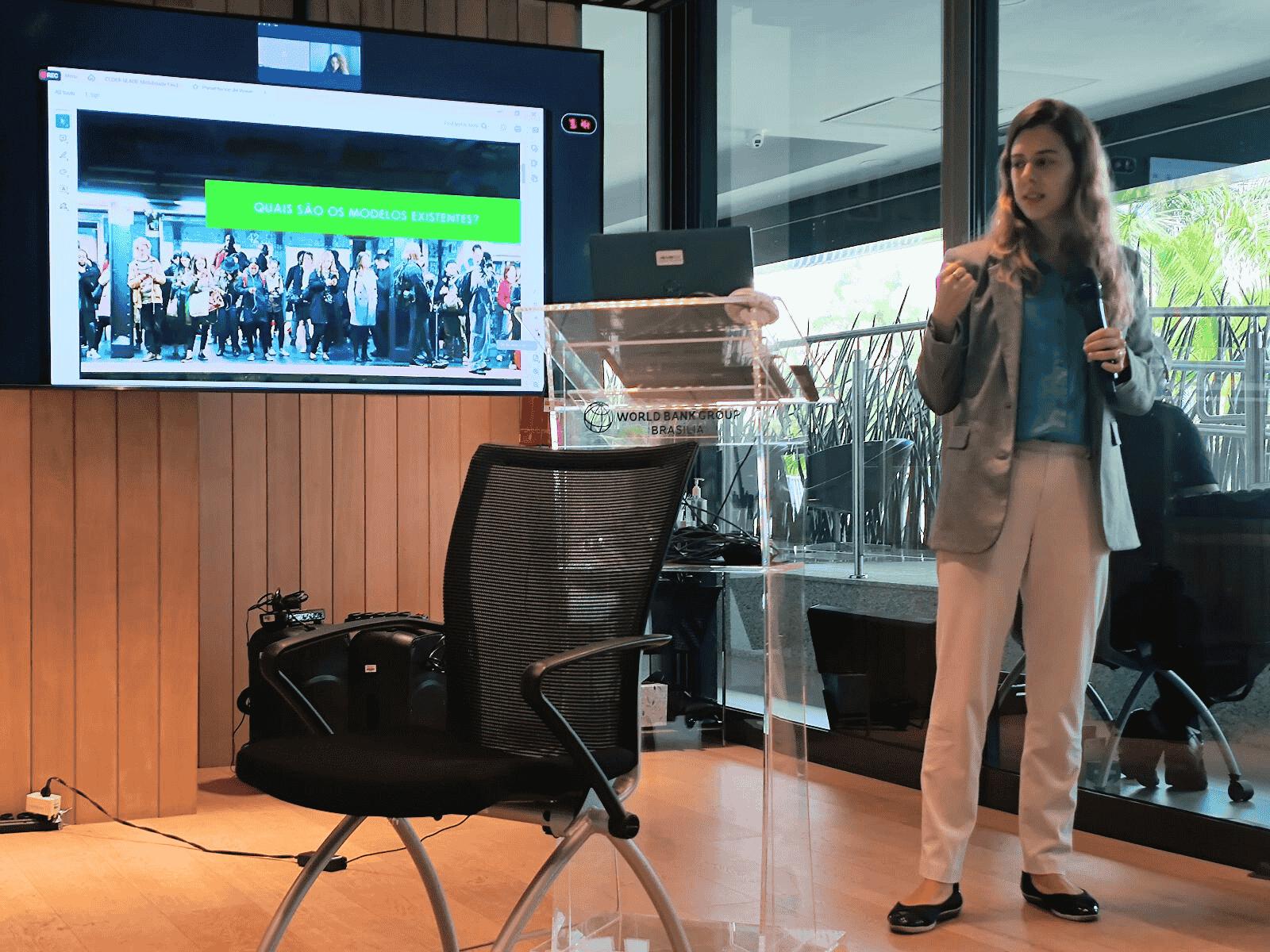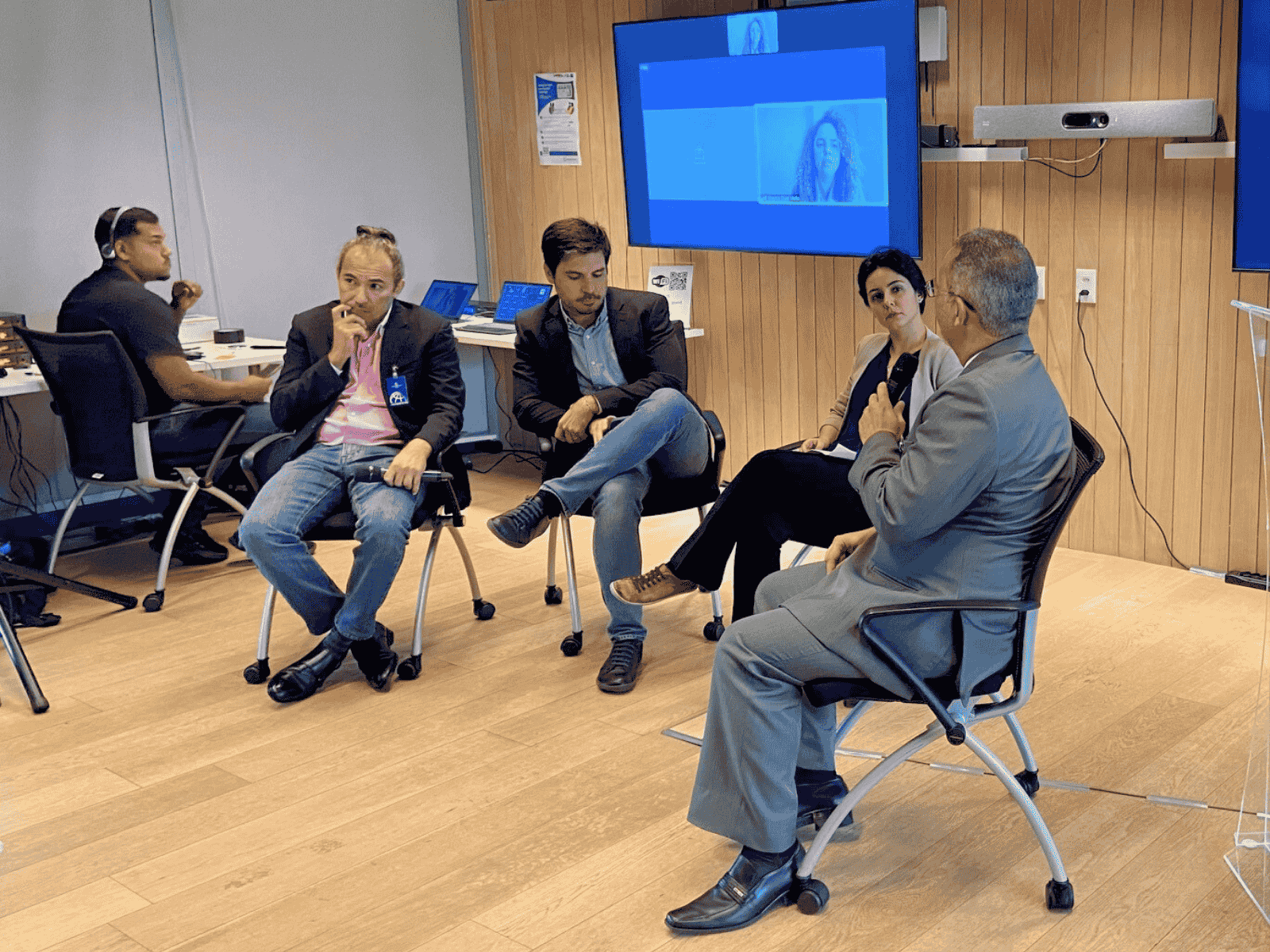Nommon participates in World Bank workshop in Brasilia on mobile phone data for policy making
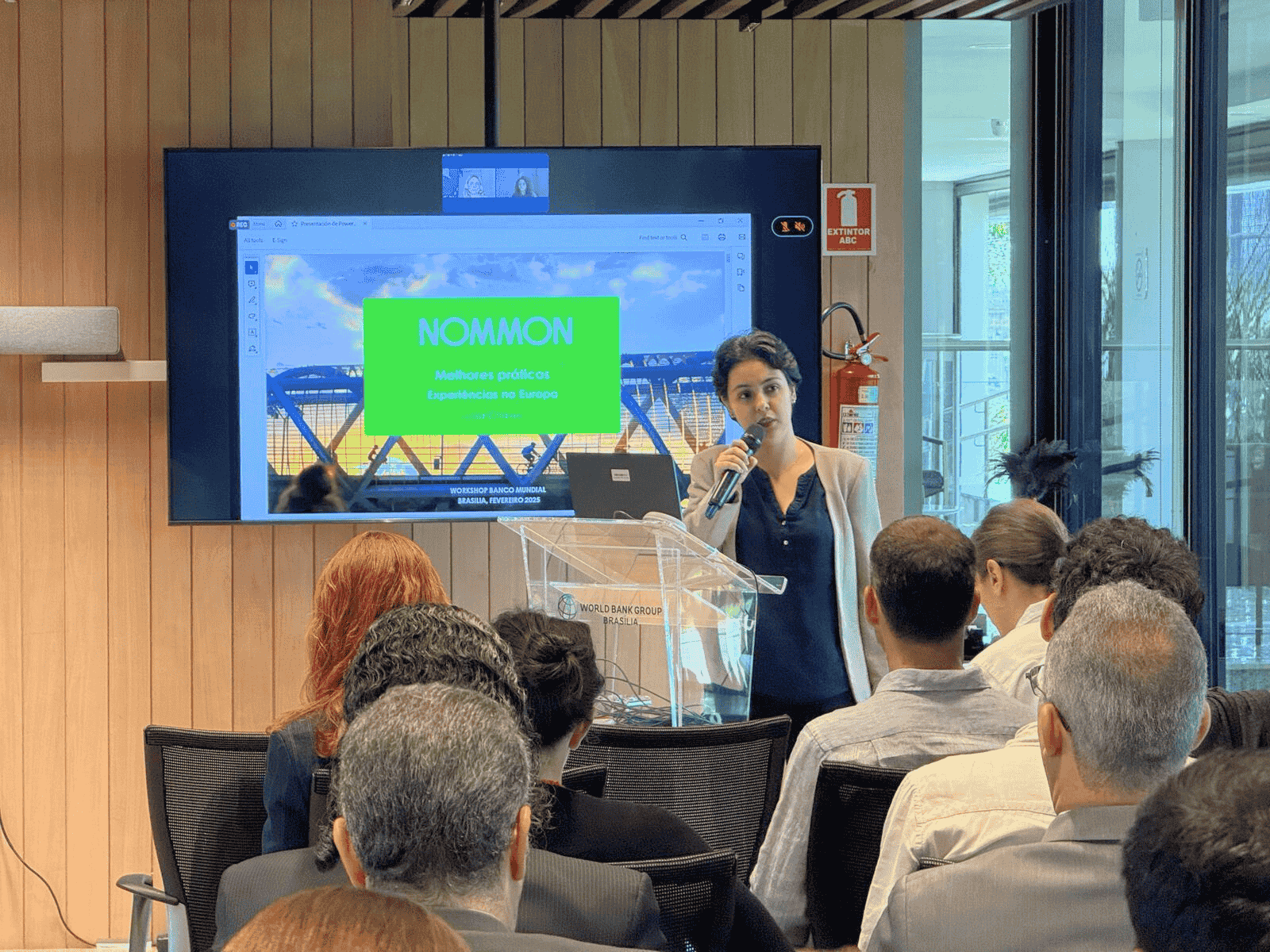
Luisa Chaves, Chief Business Development Officer at Nommon, and Bruna Calazans, Mobility Analytics Director, contributed to the discussions on best practices and institutional models for mobile phone data analysis
On February 12th, the World Bank hosted the workshop “Mobile phone data for policy planning and monitoring”, bringing together around 60 key stakeholders from public institutions, regulatory bodies, and the private sector to explore the use of anonymised mobile phone data (MPD) in policy making. Held at the World Bank’s headquarters in Brasília and streamed online, the event focused on MPD’s potential to support data-driven decision-making in sectors such as transport and urban planning, the regulatory landscape in Brazil, and the role of data sharing agreements in enabling wider adoption.
Nommon, represented by Luisa Chaves, Business Development Director, and Bruna Calazans, Mobility Analytics Director, played an active role in the event, sharing insights on global MPD applications and European best practices, and discussing the challenges and opportunities related to its adoption in Brazil.
Luisa Chaves led a session on the global landscape of MPD applications, outlining the different levels of technological adoption across various countries. She highlighted how MPD is already integrated into planning practices in countries such as Spain and the United Kingdom; in other regions, such as Brazil, the use of MPD is still emerging, though some pioneering projects are underway. She also presented some of our projects, demonstrating MPD applications in public statistics, transportation planning, tourism, environmental health, and migration analysis. Among others, she mentioned the MePreCiSa project, led by the Barcelona Supercomputing Center, which applies MPD to environmental health studies; various tourism analyses using our Population Insights solution, which provides dynamic population maps, visitor footfall, and other presence and activity indicators; and the DARUMA project, which studied residential migrations in Spain. To conclude, Luisa Chaves emphasised the importance of data fusion, validation processes, and close collaboration with mobile network operators.
Bruna Calazans focused on institutional arrangements and business models for MPD adoption, comparing the approaches taken by two European institutions Nommon is working with: the Spanish Ministry of Transport and Sustainable Mobility (MITMS) and the European Statistical Office, Eurostat. Nommon’s project with Eurostat consists in the development of a methodological standard and an open-source software pipeline for the processing of MPD for official statistics; the work carried out for the MITMS involves the generation of daily mobility indicators using Nommon’s Mobility Insights solution. Bruna Calazans analysed the key factors influencing institutional models, including data storage and processing responsibilities, methodology development, and procurement processes, stressing that no “one-size-fits-all” model exists. Instead, she outlined how the optimal institutional framework depends on specific objectives, resources, and legal considerations in each country.
Following her presentation on institutional arrangements, Bruna Calazans facilitated two discussion sessions. The first session focused on ongoing discussions about data agreements in Brazil and the expected timeline for finalising them. The second debate was on the technical capabilities and expertise required for public institutions at different government levels to effectively work with MPD, addressing key gaps and barriers for adoption, as well as strategies for capacity-building through training, hiring, and external consultancy.
The event also included presentations from Brazilian governmental institutions such as ANATEL, the Ministry of Cities, the Brazilian Institute of Geography and Statistics (IBGE), the Secretary of Transport and Mobility of Salvador (Semob), São Paulo’s Institute of Technological Research (IPT), and São Paulo State Statistical Data Analysis System Foundation (SEADE-SP), alongside contributions from mobile network operators and other international experts, serving as a platform for knowledge exchange and insightful debates on regulatory frameworks, data privacy, and strategies for fostering collaboration between public and private entities to facilitate MPD access and utilisation. The workshop participants highlighted the importance of integrating big data analytics into policy planning processes, supporting institutions in unlocking the full potential of MPD for sustainable development, and enhancing data-driven decision-making in the public sector.
